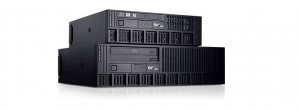Automation has been part of the production process for many years. In 1947 General Motors created an automation department in their factory. At that time, the technology tools used in industrial automation were largely electrical, mechanical, and hydraulic. Amazingly, in the first 17 years of the department, General Motors doubled their productivity and output. Proving that Industrial Automation is a valuable investment.
In 2012, Bill Gates was quoted as saying, “If GM had kept up with technology like the computer industry has, we would all be driving $25 cars that got 1,000 MPG.” The computer industry has gone through extensive automation. Components continue to get more powerful and smaller. With advanced computing capabilities computers not only lead the market in automation but are now being used to increase productivity and automation in other industries.
Industrial Automation
Automation can relate to almost any business industry and in many industries it is a large factor of success. The automated teller at a bank is a form of digital automation being ran by an industrial computer as an embedded pc. Medical testing can be carried out quickly and information stored automatically in a digital format. Unfortunately many businesses use regular pcs in harsh environments not suitable for a traditional desktop. Tough environments can benefit from an industrial computer.
The Role of an Industrial Computer
The role of an industrial computer in the process of automation is to insure the tasks are completed quickly and efficiently with minimal delay or problems. An industrial computer is specifically designed to withstand harsh conditions which may contain strong vibrations, moisture or dusty elements, extreme variances in temperature and a number of other harmful elements to computers. In fact, they have been designed to withstand practically any setting and come standard with strong controlling mechanisms, multiple cooling processes, air filtering systems and protection from almost any type of environment.
Often described as rugged computers, these technological processing machines are typically built large and robust looking with standards of reliability (features of EMI filtering and watchdog timers,) durability and capability. They also contribute to save on energy and overhead business costs due to their streamlined appearance and low energy output, making them ideal for industrial businesses to use in the automation process.
Designing a Specific Industrial PC
While many industrial computers are built to be bulky and tough. Many manufacturers are suggesting Thin Client Systems that provide OEM’s and industrial businesses thin and sturdy industrial computers who host Precision workstations. These computers can handle the many elements of an industrial environment and are adjustable for programming company needs while hosting an Extended Life Program. Extended Life Programs are XL programs that create longer life cycles for industrial computers with scheduled transitions and updates.
Efficient and Reliable Automation Systems
As Bill Gates said, “The first rule of any technology used in a business is that automation applied to an efficient operation will magnify the efficiency.” The combination of industry specific industrial computers and automation has created industrial systems of efficiency and reliability in many business industries. These key traits result in quality products, happy customers and successful businesses who realize the value and path leading from industrial computer to groundbreaking developments in industrial automation.
Efficient and Reliable Automation Systems
As Bill Gates said, “The first rule of any technology used in a business is that automation applied to an efficient operation will magnify the efficiency.” The combination of industry specific industrial computers and automation has created industrial systems of efficiency and reliability in many business industries. These key traits result in quality products, happy customers and successful businesses who realize the value and path leading from industrial computer to groundbreaking developments in industrial automation.
Jared Jacobs
Jared Jacobs has professional and personal interests in technology. As an employee of Dell, he has to stay up to date on the latest innovations in large enterprise solutions and consumer electronics buying trends. Personally, he loves making additions to his media rooms and experimenting with surround sound equipment. He’s also a big Rockets and Texans fan.
